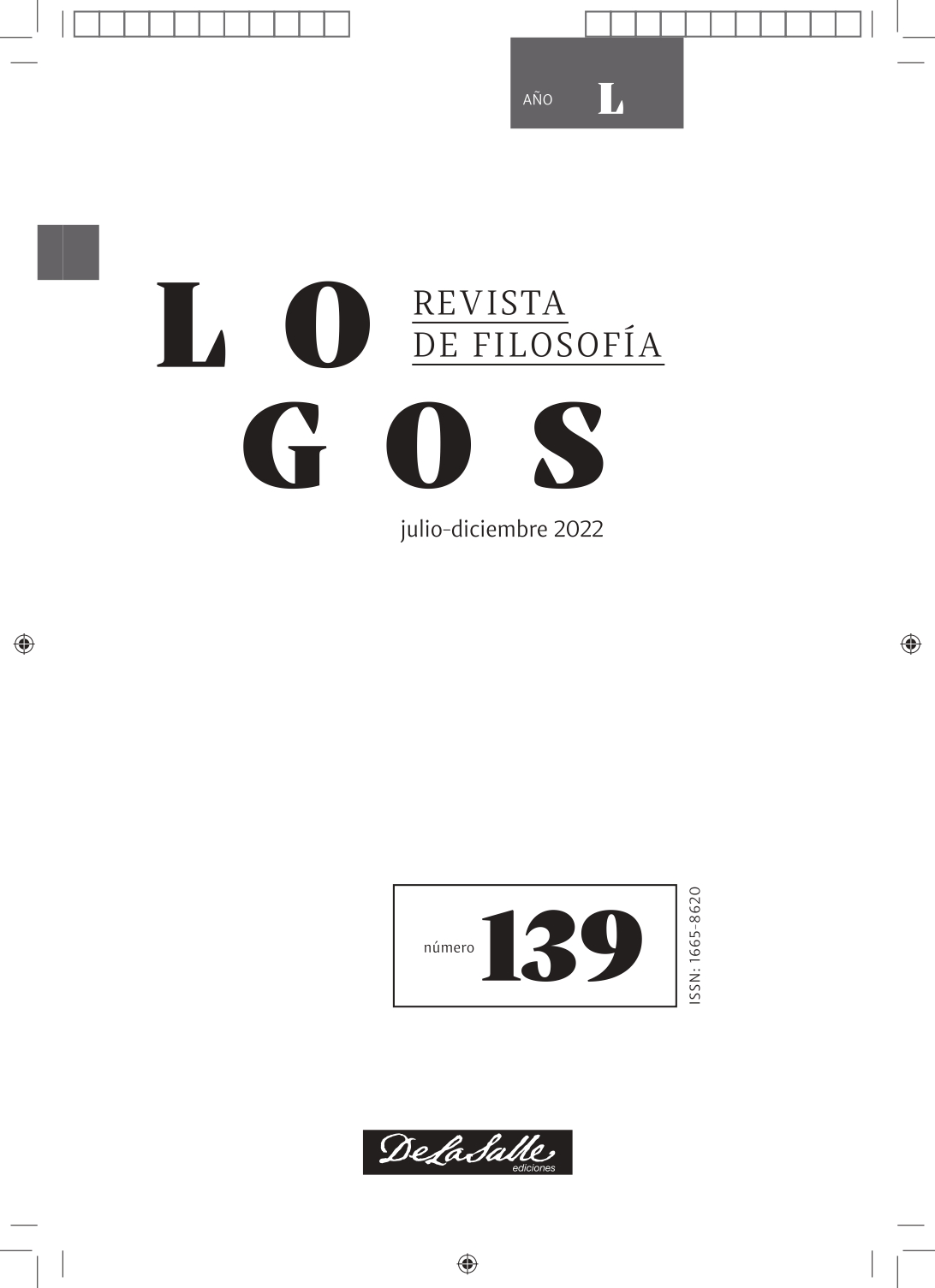Justicia en el acceso a la tecnología emergente: la terapia génica desde Latinoamérica
DOI:
https://doi.org/10.26457/lrf.v139i139.3347Resumen
La tecnología en salud avanza rápidamente en la búsqueda por mejorar la condición humana. No obstante, la innovación tecnológica implica cuestiones técnicas, metodológicas, legales, éticas y morales que varían según el contexto sociocultural. Así, reconocemos un problema determinado geográficamente, el acceso justo a la tecnología emergente, que apremia a Latinoamérica. Se toma como ejemplo la terapia génica para reconocer, a partir de una revisión bibliográfica, por qué los investigadores están a favor, en medio o en contra del avance tecnológico en genética y del uso de la terapia génica en seres humanos. Concluimos que la justicia social debe ir más allá de la simple distribución de bienes, materiales y recursos. Por ello, enfatizamos la necesidad de un enfoque transdisciplinario que acompañe el avance tecnológico desde el punto de vista jurídico y filosófico, y proponemos el valor bioético de la solidaridad como pilar para la toma de decisiones futuras.
Abstract
Health technology is advancing rapidly in the pursuit of improving the human condition, but technological innovation involves technical, methodological, legal, ethical, and moral issues that vary depending on the socio-cultural context. Thus, we recognize a geographically determined problem, the fair access to emerging technology pressing in Latin America. Gene therapy is taken as an example to recognize, from a literature review, why academics favor or oppose the technological advance in genetics and the use of gene therapy in human beings. Finally, we conclude that social justice must go beyond the simple distribution of goods, materials, and resources. That is why we emphasize the need for a transdisciplinary approach that accompanies technological progress from the legal and philosophical point of view and propose the bioethical value of solidarity as the basement for future decision-making.
Palabras claves
Justicia, tecnologías emergentes, salud, genética, Latinoamérica.
Keywords
Justice, emerging technologies, health, genetics, Latin America.
Referencias
Baumann, M. (2016). CRISPR/Cas9 genome editing-new and old ethical issues arising from a revolutionary technology. NanoEthics. Recuperado de https://link.springer.com/article/10.1007/s11569-016-0259-0
BBC News (2021, 4 de febrero). La distribución desigual de vacunas entre países ricos y pobres significará que el virus continuará propagándose y mutando. BBC News. Recuperado de https://www.bbc.com/mundo/noticias-55911364
Bostrom, N. (2020). Human genetic enhancements: a transhumanist perspective. En The ethics of sports technologies and human enhancement (pp. 339-352). Oxford, Reino Unido: Routledge.
Breña, A. y Breña, J. (2007) Disponibilidad de agua en el futuro de México. Revista de la Academia Mexicana de Ciencias, 58(3), 64-71. Recuperado de https://www.revistaciencia.amc.edu.mx/index.php/ediciones-anteriores/77-vol-58-num-3-julio-septiembre-2007/agua/123-disponibilidad-de-agua-en-el-futuro-de-mexico
Brokowski, C. y Adli, M. (2018). AC Yale School of Medicine US CR. Journal of Molecular Biology. doi.org/10.1016/j.jmb.2018.05.044
Cáceres, P. (2008). Análisis cualitativo de contenido: una alternativa metodológica alcanzable. Psicoperspectivas. Individuo y sociedad, 2(1), 53-82.
Creary, M. S. (2021). Bounded justice and the limits of health equity. The Journal of Law, Medicine & Ethics, 49(2), 241-256. doi.org/10.1017/jme.2021.34
Cribbs, A. P., y Perera, S. M. W. (2017). Focus: genome editing: science and bioethics of crispr-Cas9 gene editing: an analysis towards separating facts and fiction. The Yale Journal of Biology and Medicine. Recuperado de https://www.ncbi.nlm.nih.gov/pmc/articles/PMC5733851/
Fong, H. y Harris, E. (2015). Technology, innovation, and health equity. Bulletin of the World Health Organization, 93(7), 438-438A. doi.org/10.2471/BLT.15.155952
Hildebrandt, C. y Marron, J. (2018). State of the art and science: peer-reviewed article Justice in crispr/Cas9 Research and Clinical Applications Clara. AMA Journal of Ethics, 20(12), 1171-1181.
Ishii, T. (2017). The ethics of creating genetically modified children using genome editing. Current Opinion in Endocrinology, Diabetes. Recuperado de https://journals.lww.com/co-endocrinology/Fulltext/2017/12000/The_ethics_of_creating_genetically_modified.7.aspx
Kolers, A. (2020). What does solidarity do for bioethics? Journal of Medical Ethics, 47(2). doi:10.1136/medethics-2019-106040
MacNeil, M., Koch, M., Kuspinar, A., Juzwishin, D., Lehoux, P. y Stolee, P. (2019). Enabling health technology innovation in Canada: Barriers and facilitators in policy and regulatory processes. Health Policy, 123(2), 203-214. doi.org/10.1016/j.healthpol.2018.09.018
Mandel, G. N. (2009). Regulating emerging technologies. Law, Innovation and Technology, 1(1), 75-92. doi:10.1080/17579961.2009.11428365
Mulvihill, J. J., Capps, B., Joly, Y., Lysaght, T., Zwart, H. A. E., y Chadwick, R. (2017). Ethical issues of CRISPR technology and gene editing through the lens of solidarity. British Medical Bulletin, 122(1), 17-29. doi.org/10.1093/bmb/ldx002
Munsie, M., y Gyngell, C. (2018). Ethical issues in genetic modification and why application matters. Current Opinion in Genetics & Development. Recuperado de https://www.sciencedirect.com/science/article/pii/S0959437X18300212
Napoletano, S., Piersanti, V., y Rallo, G. (2021). CRISPR-CAS9: A groundbreaking new technique which ushers in new prospects and just as many doubts. Clinica Terapeutica, 172(1), 52-54. doi.org/10.7417/CT.2021.2281
Naylor, D., Girard, F., Mintz, J. M., Fraser, N., Jenkins, T., y Power, C. (2015). Unleashing innovation: excellent healthcare for Canada: report of the advisory panel on healthcare innovation. Ottawa, Canadá: Health Canada.
Niccol, A. (Director). (1997). Gattaca [Película]. Columbia Pictures.
Ormond, K. E., Mortlock, D. P., Scholes, D. T., Bombard, Y., Brody, L. C., Faucett, W. A., Young, C. E. (2017). Human Germline Genome Editing. American Journal of Human Genetics, 101(2), 167-176. doi.org/10.1016/j.ajhg.2017.06.012
Page, M., McKenzie, J., Bossuyt, P., Boutron, I., Hoffmann, T., Mulrow, C. et al. (2021). THE PRISMA 2020 statement: an updated guideline for reporting systematic reviews. bmj, 71. doi.org/10.1136/bmj.n71
Papageorghiou A. (2020). Insights into determinants of health. BJOG: An International Journal of Obstetrics & Gynaecology, 127(4), 431-432.
Peter, F. (2001). Health equity and social justice. Journal of Applied Philosophy, 18(2), 159-170. http://www.jstor.org/stable/24354092
Prainsack, B. y Buyx, A. (2012). Solidarity in contemporary bioethics. Towards a new approach. Bioethics, 26(7), 343-350. Doi:10.1111/J.1467-8519.2012.01987.X
Rawls, J. (2020). A theory of justice. Cambridge, Reino Unido: Harvard University Press.
Rubeis, G., y Steger, F. (2018). Risks and benefits of human germline genome editing: An ethical analysis. Asian Bioethics Review. Recuperado de https://link.springer.com/article/10.1007/s41649-018-0056-x
Sen, A. (1999). Development as Freedom. Nueva York, Estados Unidos: Alfred A. Knopf.
Zhou, Q., Zhang, Y., Zou, Y., Yin, T. y Yang, J. (2020). Human embryo gene editing: God’s scalpel or Pandora’s box? Briefings in Functional Genomics. Recuperado de https://academic.oup.com/bfg/article-abstract/19/3/154/5758060


